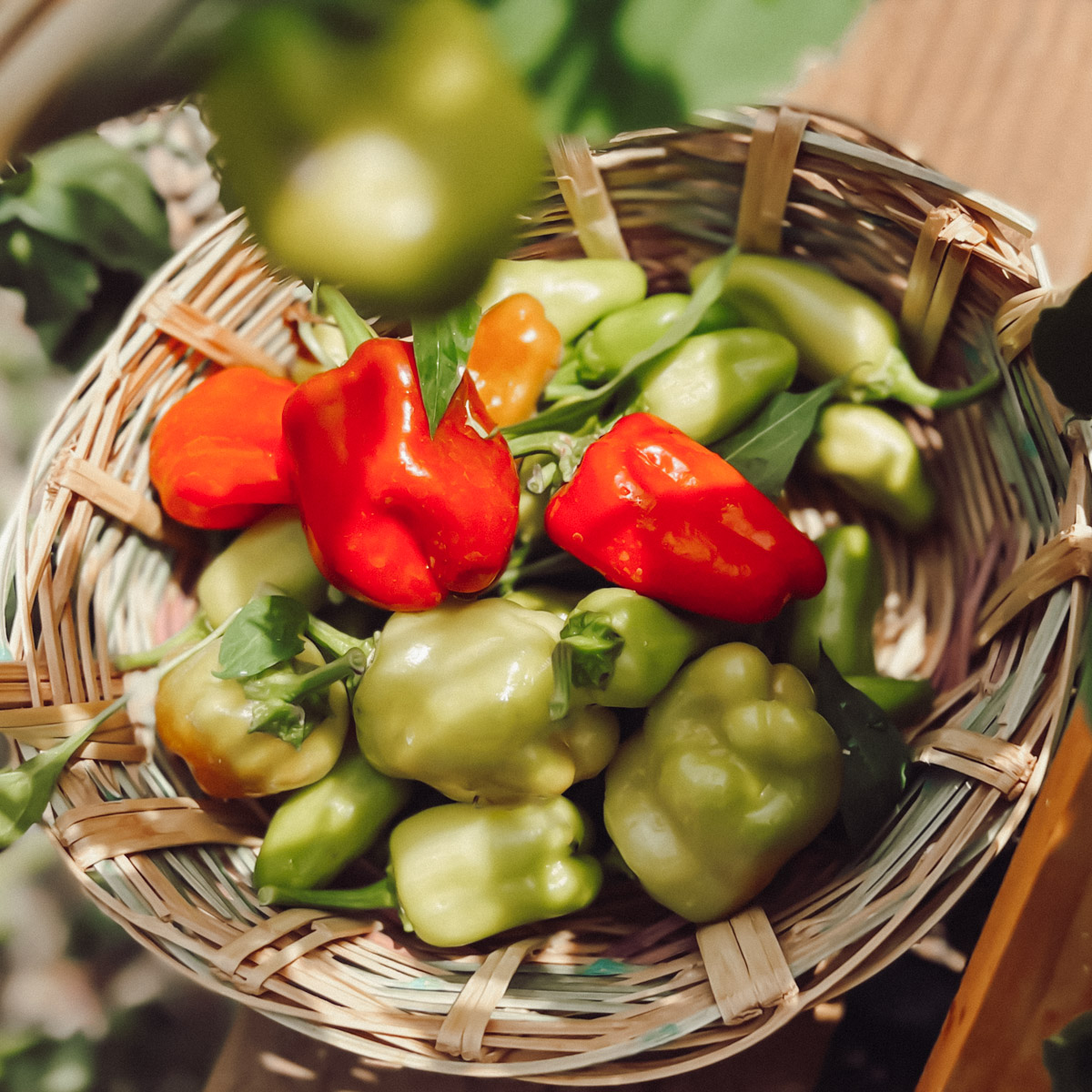Check Out the Best Fertilizers for Peppers and Enhance Your Yard's Return
Check Out the Best Fertilizers for Peppers and Enhance Your Yard's Return
Blog Article
Organic Vs. Synthetic Fertilizers: Which Is Best for Supporting Healthy And Balanced Pepper Plants?
In the world of supporting healthy and balanced pepper plants, the selection between synthetic and natural plant foods stands as a pivotal choice with far-reaching ramifications. While both alternatives aim to offer crucial nutrients to sustain plant growth, the subtleties of their effect on the dirt, plant health and wellness, and the setting trigger a dispute that echoes throughout the horticulture community. Recognizing the distinctive benefits and potential challenges of each fertilizer type is crucial for pepper farmers seeking to maximize their returns while maintaining a lasting and eco-conscious technique.
Advantages of Organic Fertilizers
Organic plant foods offer a lasting and environmentally-friendly strategy to beneficial pepper plants, offering vital nutrients without using artificial chemicals. These all-natural plant foods are originated from organic resources such as compost, manure, bone meal, and algae, advertising dirt wellness and biodiversity. Unlike synthetic plant foods, natural options launch nutrients slowly, ensuring a well balanced and steady supply for pepper plants to thrive.
One significant advantage of natural fertilizers is their capability to improve soil structure and water retention. By improving dirt wellness, organic plant foods advertise helpful microbial task, which assists in nutrient uptake by pepper plants. In addition, organic plant foods minimize the threat of chemical run-off, safeguarding water resources from contamination and securing the atmosphere.
Moreover, organic plant foods add to long-lasting soil fertility by advertising the development of helpful soil organisms. These microorganisms aid damage down natural issue, launching nutrients in a kind that is easily available to pepper plants. best fertilizers for peppers. By promoting a healthy and balanced soil ecological community, organic plant foods support lasting pepper farming techniques that benefit both plants and the environment
Disadvantages of Artificial Plant Foods
Synthetic fertilizers, in comparison to their natural equivalents, position various disadvantages when made use of to nurture pepper plants, influencing both plant wellness and environmental sustainability. One major downside of artificial fertilizers is their tendency to seep nutrients from the dirt rapidly.
Additionally, the overuse of artificial plant foods can add to water pollution. Excess fertilizers not taken in by plants can get rid of right into water bodies, resulting in eutrophication, where algae flowers diminish oxygen levels in the water, harming marine life. Moreover, artificial fertilizers are commonly stemmed from non-renewable sources, such as nonrenewable fuel sources, adding to carbon exhausts and ecological deterioration during their production.
Nutrient Absorption Comparison
When contrasting artificial and natural plant foods in terms of nutrient absorption, natural plant foods have the benefit of providing a more well balanced and slow-release resource of nutrients. Organic plant foods contain a variety of macro and micronutrients that are not only useful for the plants however likewise promote healthy soil microbial activity, which aids in nutrient uptake.
Moreover, natural plant foods improve soil structure and water retention capability, enabling pepper plants to gain access to nutrients much more successfully. This enhanced soil quality helps with root development, enabling better nutrient absorption. Artificial plant foods, although originally improving plant growth due to their high nutrient concentrations, may prevent long-term nutrient absorption by degrading dirt wellness gradually.
Ecological Impact Considerations

On the other hand, artificial fertilizers, although frequently even more quickly offered and concentrated to plants, can have detrimental impacts on the atmosphere otherwise applied properly (best fertilizers for peppers). Their manufacturing requires high power inputs, resulting in greenhouse gas exhausts and adding to environment change. this post Additionally, the runoff of excess artificial fertilizers can pollute water resources, resulting in eutrophication and damaging aquatic ecological communities.
Best Fertilizer Practices for Peppers
When feeding pepper plants, maximizing nutrient uptake and minimizing environmental impact are crucial considerations. To accomplish this, it is vital to follow best fertilizer practices tailored to the particular requirements of pepper plants. One critical technique is to perform a soil test before applying any fertilizers. This test can identify the pH level of the soil and identify any nutrient deficiencies, guiding you in selecting the most suitable fertilizer formulation.
An additional crucial method is to fertilize pepper plants at the right time. Generally, peppers gain from obtaining plant food at planting and then once more when they begin to blossom. Over-fertilizing can cause nutrition discrepancies and harm the plants, so it is essential to adhere to suggested application rates.
Additionally, selecting a balanced fertilizer with an NPK proportion that suits pepper plants' requirements is fundamental. Inevitably, combining synthetic and natural fertilizers carefully can aid nurture healthy and balanced pepper plants while minimizing environmental influence.
Conclusion

Organic plant foods offer an environmentally-friendly and lasting approach to nourishing pepper plants, supplying essential nutrients without the use of artificial chemicals. Unlike artificial plant foods, organic options release nutrients gradually, making certain a stable and balanced supply for pepper plants to prosper.
Synthetic plant foods, in contrast to their organic equivalents, posture numerous disadvantages when utilized to nourish pepper plants, affecting both plant wellness and ecological sustainability. When contrasting natural and artificial plant foods in terms of nutrient absorption, natural plant foods have the benefit of giving an extra well balanced and slow-release resource of nutrients.Furthermore, organic fertilizers enhance soil framework and water retention capacity, allowing pepper plants to access nutrients extra efficiently.
Report this page